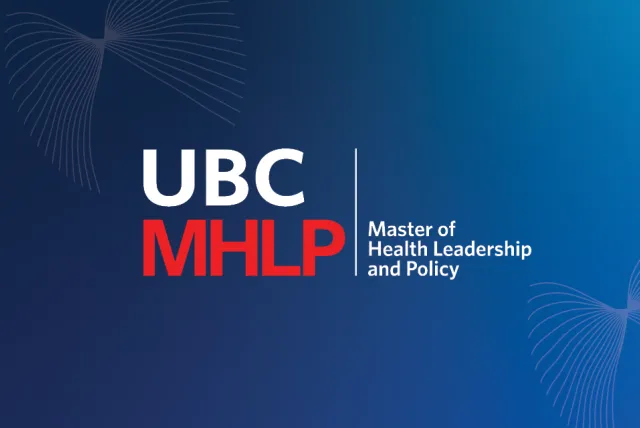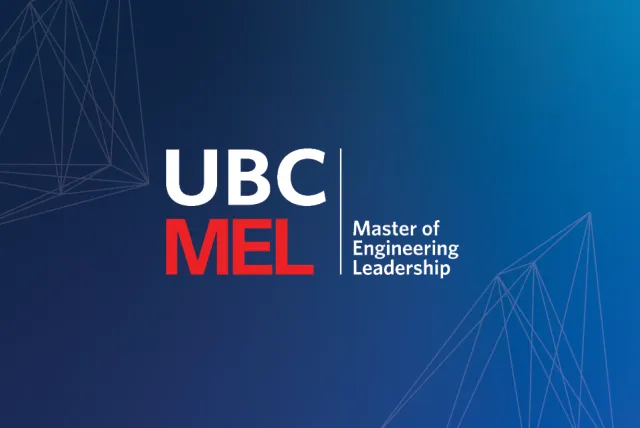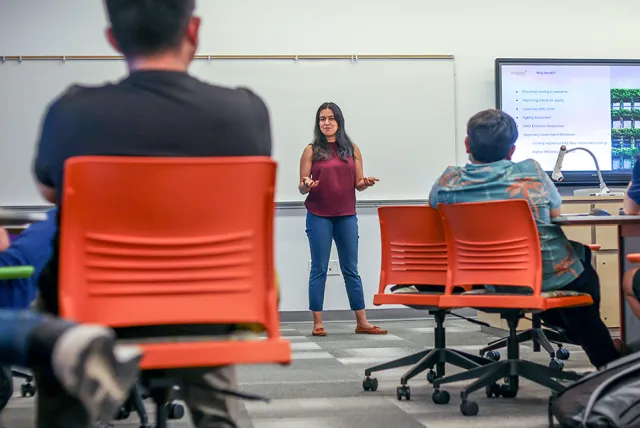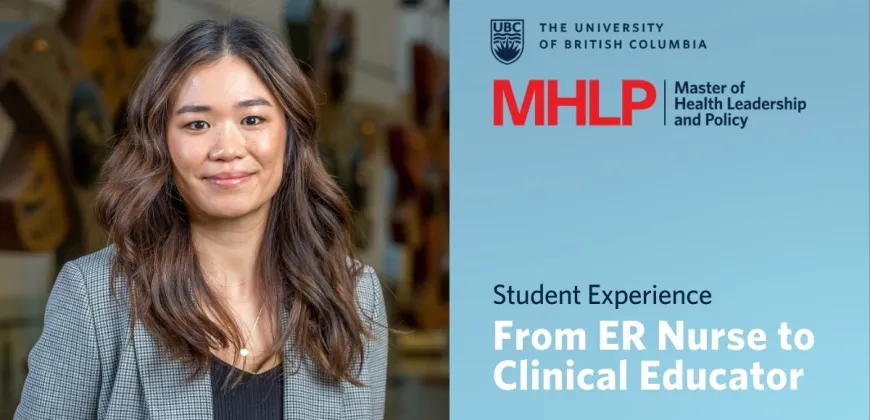
UBC Master of Engineering Leadership and Master of Health Leadership and Policy
Gain the technical skills and business knowledge to accelerate your career.

A professional master’s degree from UBC is one of the best investments you can make in your future.
Our innovative interdisciplinary graduate degrees combine sector-specific courses taught through the Faculty of Applied Science with business and leadership courses taught through Sauder’s Robert H. Lee Graduate School.
It’s a powerful combination that prepares you to work for transformative change within your industry. You’ll learn how to develop and implement solutions to make our communities, workplaces and world more resilient and sustainable.
Over the course of the degree, you’ll gain sector-specific technical knowledge, expand your network and develop the leadership and communication skills to confidently take your career in new directions and make an impact in your industry.

Advance your career with a professional master’s degree in health-care leadership.

Move ahead in your career with a professional master’s degree in engineering leadership.

Gain tangible, career-building skills from capstone projects, practicums and project-based coursework.
Discover how our students are making an impact in their fields, from leadership in healthcare to breakthroughs in engineering. These stories highlight the real-world applications of our degree programs, offering insights into the skills, experiences, and accomplishments that define our graduates.






Discover the stories of our alumni and learn how they’re leveraging their degrees to reach new personal and professional heights.